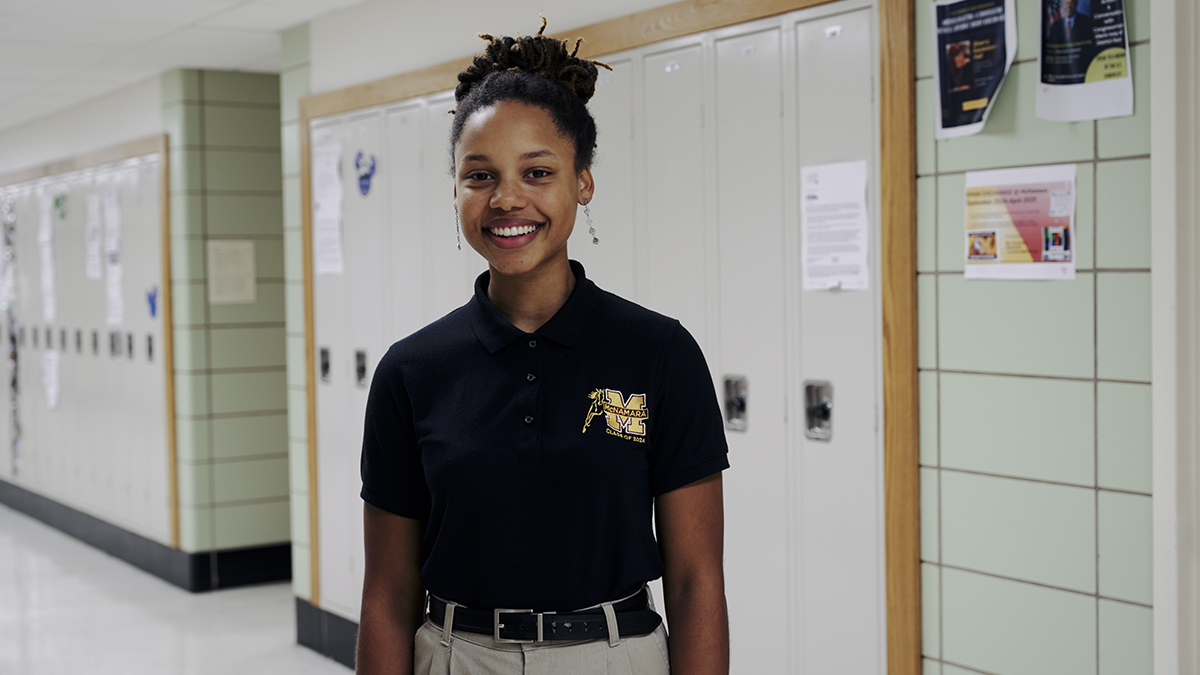Dr. Sonya Grier’s Race in the Marketplace class at American University is at capacity and started this semester with a waitlist. She said both undergrad and MBA students are interested in the importance of diversity in the marketplace – but that’s not always reflected in the classroom or the teaching ranks.
Only a small percentage of tenured professors on most college campuses are Black women.
“I can tell you that when I came, I was the only Black scholar in the business school for 10 years. I have really worked hard to hire, and now we have probably the most diverse business school faculty in the country,” said Grier, who is the university’s Kogod Eminent Scholar Chair in Marketing.
While the numbers may have improved at American University, there’s still a problem nationwide. There were under 260,000 tenured associate and full professors at public and private nonprofit four-year colleges in fall 2019, according to The Chronicle for Higher Education. Of those, 5,221, or 2.1%, were Black women.
We've got the news you need to know to start your day. Sign up for the First & 4Most morning newsletter — delivered to your inbox daily. Sign up here.
The presence of a diverse range of scholars really matters, Grier said.
“Diverse scholars bring different perspectives. It's particularly important, I think, for full professors, because full professors participate in faculty governance. They help to shape the curriculum. They help to hire other people and determine who's on the faculty. Those things are really important to an institution,” she said.
It’s also important for students of color to see faculty that look like them, Grier said.
Barriers to obtaining tenure
Many universities are still struggling with the tenure track when it comes to Black scholars. Tenure gives job security and allows professors flexibility for teaching and research. It’s the pinnacle in academia and it’s not always easy to achieve.
“The path from associate to full is, in some cases, almost insurmountable. Challenging, to say the least,” said Dr. Karsonya Whitehead, founding executive director of The Karson Institute for Race, Peace & Social Justice and a professor of communication at Loyola University Maryland.
She is the fourth Black woman to become a full professor in the university’s 170-year history, and the only Black professor in her department. She said she struggled to obtain tenure when she started teaching in 2015, even though she had years of relevant, published work and research.
“What I did know is that I was watching my white male colleagues and white female colleagues around the country receive the support they needed. They were told to go up as soon as possible. They were told, ‘You get denied, go up again the next year.’ They were told, ‘Come and publish with me. I'm going to have you as first author on this paper so you can build your publication. Come and speak at this university so I can build your national reputation.’ I wasn't receiving the same type of support,” Whitehead said.
Dr. Psyche Williams-Forson said getting to full-time tenure took time, as white colleagues didn’t always have to wait. She is now a professor and chair in the Department of American Studies at the University of Maryland, College Park, after receiving her masters and PhD at the university.
“I finished my doctorate in 2002, and I was hired in 2005. I have written two award-winning books, and in 2022 was awarded a full professorship,” she said.
Not everyone achieves tenure, and recent national headlines show how far-reaching the issue is. New York Times award-winning journalist Nikole Hannah-Jones was denied tenure at her alma mater, UNC Chapel Hill.
Texas A&M University reached a $1 million settlement with a Black professor last summer whose initial hiring offer of a tenure-track position was reduced to a one-year position after internal complaints about her work in DEI.
Most recently, Claudine Gay was forced to resign from her position as president of Harvard University, giving her the shortest tenure in the position in Harvard history.
“I know what it feels like to be rejected, only to look around and say, ‘I thought that there was something else going on. Why did I get rejected?’” Williams-Forson asked.
“No matter that it has earned you a MacArthur 'genius grant,' or no matter that it has earned you a Pulitzer, it's still not good enough. That is galling, to say the least. And it's enough to drive some people into a state, into a fit, of just sheer exasperation,” she said.
“It’s not fair, quite frankly, and it’s high time that we stop, you know, carrying on this way as a society,” she added.
Opening doors for others
Eighteen years after Grier started at American University, she was recently promoted to endowed chair in the Kogod School of Business. She now working to increase numbers for the benefit of the university community.
“Those same programs that have been around for the last three decades are now starting to expand to say, ‘Let's think about, how do we get people promoted? Not just, how do we get them into tenure-track positions? But there's a recognition and increased recognition that environments are not always supportive,” she said.
Williams-Forson also said she wants to help create opportunities for others.
“You open up doors for those who might not otherwise have those opportunities, and that's another reason why I wanted to become full professor, so that I can help open that door for others who might want to come this way as well,” she said.



